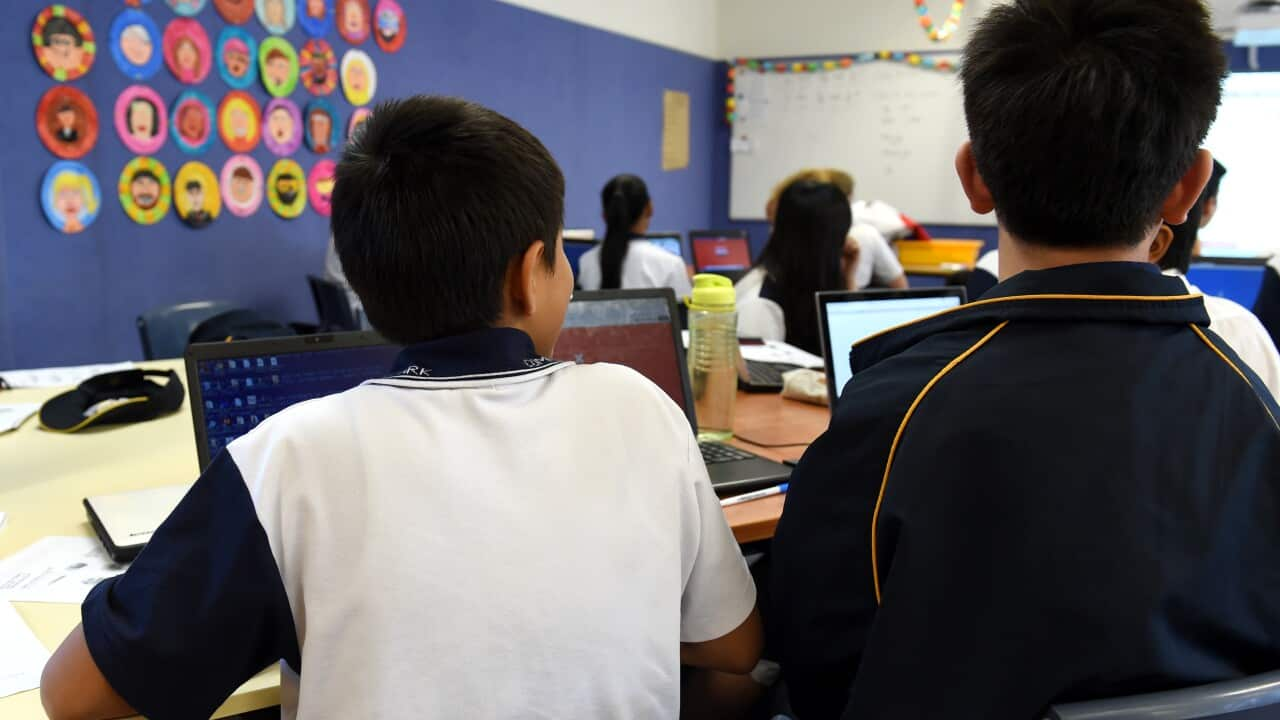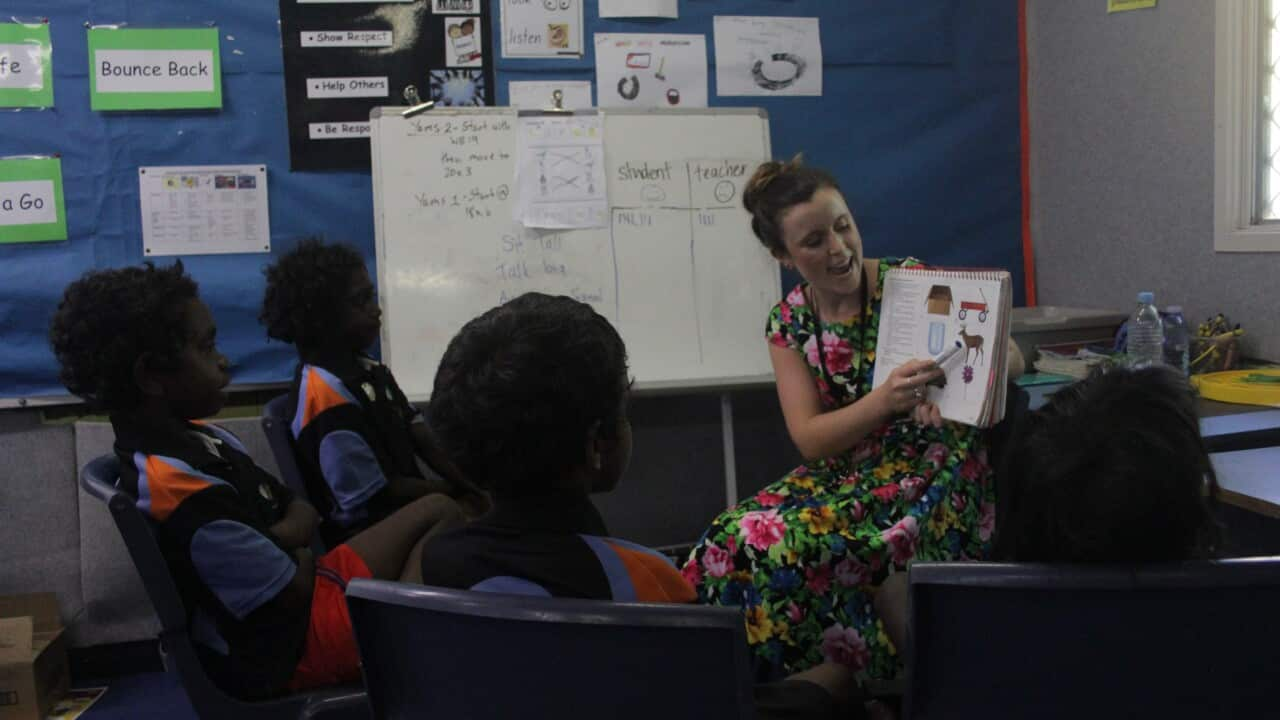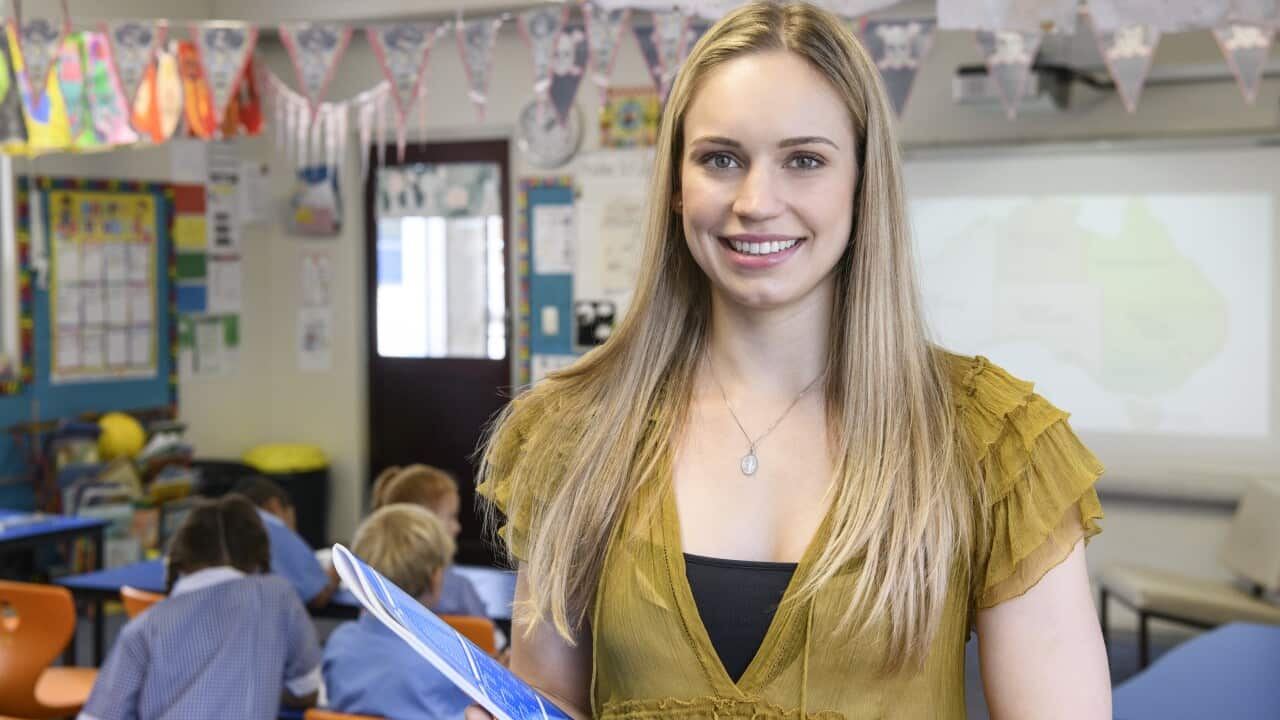Key Points
- A new report compares how Australia's schools rate with other OECD nations.
- It found Australia's teaching environments rated poorly on a number of fronts.
- Australian teachers are working more hours with slightly less competitive salaries, it found.
Australian classrooms are among the least disciplined, and the nation's teachers feel the least prepared to tackle poor student behaviour, according to an international education report.
The Organisation for Economic Co-operation and Development's (OECD) education policy outlook shows Australia's learning environments are "less favourable in terms of disciplinary climate, intimidation or bullying".
Fewer Australian teachers reported feeling prepared or capable of managing disruptive classroom behaviour than their counterparts across the OECD, which has 38 member countries.
Australian teachers also worked higher-than-average net teaching hours and had slightly less competitive salaries compared with other similarly educated professions, except for school principals.
The report cited high levels of attrition as an area of concern for the Australian education system, saying a "strong" supply of highly qualified and engaged teachers was needed.
"National evidence has projected a deficit of 4100 secondary school teachers needed by 2025," the report says.
Lower secondary teachers earned 99 per cent of the average salary of other university-educated workers, while principals earned 185 per cent, which is among the highest for school leaders in OECD countries.
Student absenteeism was also higher than the average, with one in three 15-year-olds reported to have skipped at least one day of school in the two weeks before the Program for International Student Assessment (PISA) 2018 test, compared with one in five students across the OECD.
The report found evidence of growing disengagement among students in their final years of high school, due to disruptions including the COVID-19 pandemic and pre-existing "cumulative learning gaps".
Federal Education Minister Jason Clare said the report confirmed the "equity issues and teacher workforce challenges we face".
"While the report shows we have a good education system by international standards, we know it should be a lot better and a lot fairer," he said.
Australian Education Union federal president Correna Haythorpe said the report reaffirmed the need for equity in education.
"While the OECD makes it clear that Australian students perform well compared internationally, our PISA performance continues to decline, and there are significant gaps in literacy and numeracy proficiency among 15-years-olds," she said.
"It also highlights the need to consult and work with the teaching profession at all stages."











